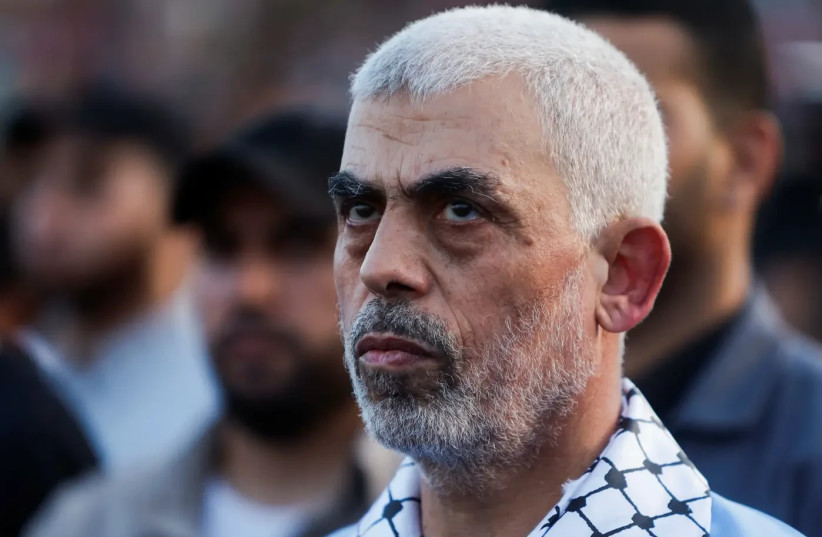US Secretary of State Antony Blinken said the response from Hamas on a potential deal to free the remaining hostages and reach a truce in the fighting in Gaza “creates space for agreement to be reached,” despite containing what he called “some clear nonstarters.”
For more stories from The Media Line go to themedialine.org
“We will work at that relentlessly until we get there,” Blinken said at a news conference in Tel Aviv Wednesday following a day of meetings with top Israeli officials. “These things are always negotiations. It’s not flipping a light switch. It’s not yes or no. There’s invariably back and forth.”
The top US diplomat suggested that negotiations toward an agreement would continue, despite Israeli Prime Minister Benjamin Netanyahu dismissing the counterproposal from Hamas as “delusional” just hours earlier.
During the same press conference, Netanyahu also renewed a pledge to destroy Hamas, saying there was no alternative for Israel but to bring about its collapse. "The day after is the day after Hamas. All of Hamas," he said, insisting that total victory against Hamas was the only solution to the four-month-old Gaza war. “There is not a commitment—there has to be a negotiation. It’s a process, and at the moment, from what I see from Hamas, it’s not happening,” Netanyahu continued.

“I told Antony Blinken we are nearly there with complete victory,” he added, adding that Israel will “not do less than that.”
Blinken, when asked about Netanyahu’s remarks, said he believed that the prime minister was referencing the “absolute non-starters,” adding, "continued military pressure is a necessary condition for the release of the hostages.”
Journalist and analyst Nihad Abu Ghosh told The Media Line, "It is obvious that Netanyahu is pressing forward with his war in Gaza without any care to what the US is saying.
"Netanyahu sounded determined and intent on going all the way with the war in Gaza. He dismissed Hamas's response knowing full well that the Biden Administration won't do a thing.”
Meanwhile, Hamas’ leader confirmed that "the resistance's response stressed the need for there to be an obligation that the agreement ultimately leads to a comprehensive ceasefire," adding that "the response demands this with complete clarity and the necessity of having a mechanism for the obligation."
A senior Hamas official told The Media Line on Wednesday that after the movement delivered its response to the potential proposal submitted, the "ball now is in Israel’s court."
Hamas has proposed a ceasefire plan that would quiet the guns in Gaza for four-and-a-half months leading to an end to the war, in response to a proposal sent last week by Qatari and Egyptian mediators and backed by the United States and Israel.
Hamas's three phased proposal
According to a draft document seen by Reuters, the Hamas counter proposal envisions three phases lasting 45 days each, as well as militants exchanging the remaining Israeli hostages they captured on October 7 for Palestinian prisoners. Additionally, the reconstruction of Gaza would begin, Israeli forces would withdraw completely, and bodies and remains would be exchanged.
The private Cairo News Channel, which is close to the Egyptian authorities, quoted an unnamed Egyptian source as saying: “Egypt has received a response from Hamas to the proposed framework regarding the truce in Gaza, and the details are being discussed by all technical parties,” without further details.
Expert on US-Israel relations, Prof. Eytan Gilboa, told The Media Line that Hamas's response represents a "failure" of American diplomacy, but despite Netanyahu's apparent rejection of the Hamas counteroffer, "the two sides are making their opening statements," and there will be another round of negotiations.
He also said that there are many issues surrounding Blinken's visit, one of which is the release of the hostages, adding that Netanyahu rejected a few of Hamas's demands which Blinken called "none starters."
"There are few, number one stopping the war, withdrawal of Israeli forces from Gaza," and their demand to release thousands of Palestinian prisoners,” said Gilboa, adding that it means Hamas would survive and be allowed to further control Gaza, which many may view as a defeat for Netanyahu. "I think there's some agreement between the United States and Israel that this was not a final offer, and negotiations could continue.
"There could be an assumption that Sinwar is winning the war, and, therefore, need not make any concessions, and if that's the case, then chances for another deal to release the hostages is not going to work.”
Where many say that Netanyahu is defying Biden's pressures and that he is not heeding Washington's requests, Gilboa disagrees.
"This is not true, and I have not seen any evidence of that. Yes, there are some differences in attitudes, but the two sides agree on the main issues."
Still, Netanyahu’s sharp rejection of an end to the fighting is likely to present a challenge to the efforts to reach an agreement. It also suggests that Blinken’s attempts to pressure the Israeli government toward a “humanitarian pause” have yielded little success.
But, according to Abu Gosh, "Time is running out, and the humanitarian catastrophe in Gaza must be dealt with immediately.”
